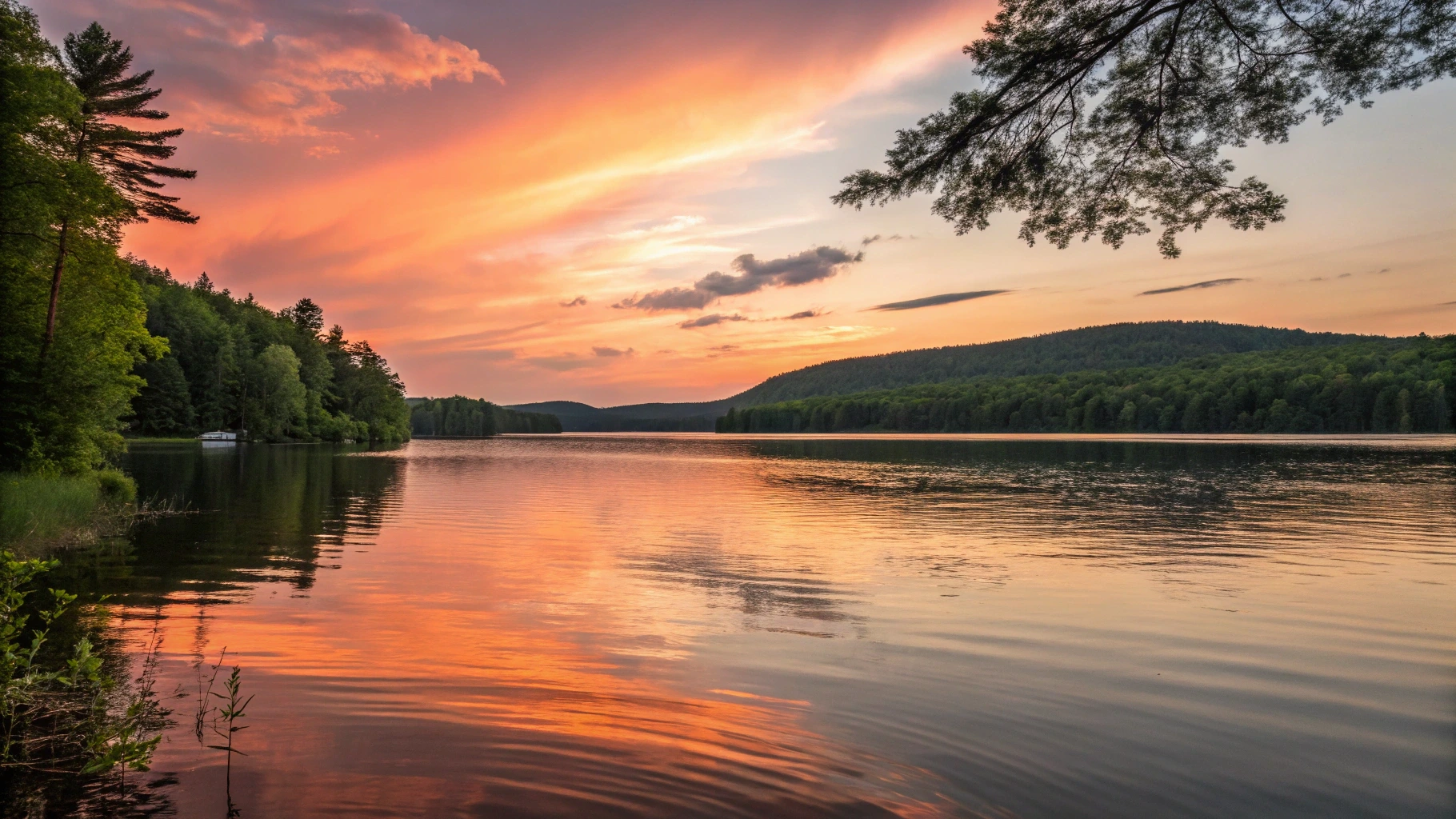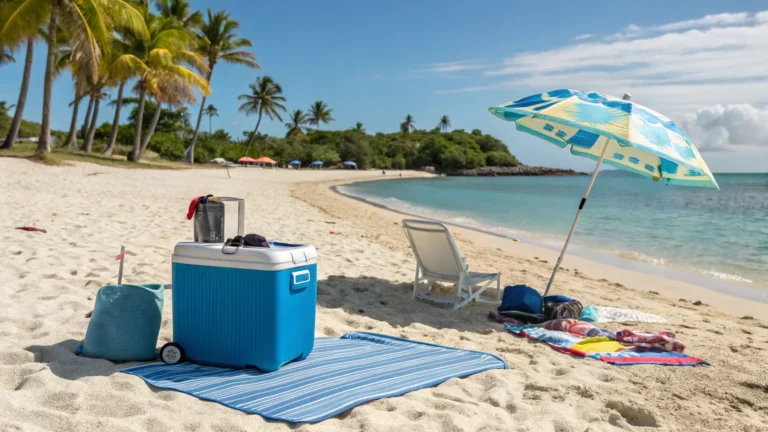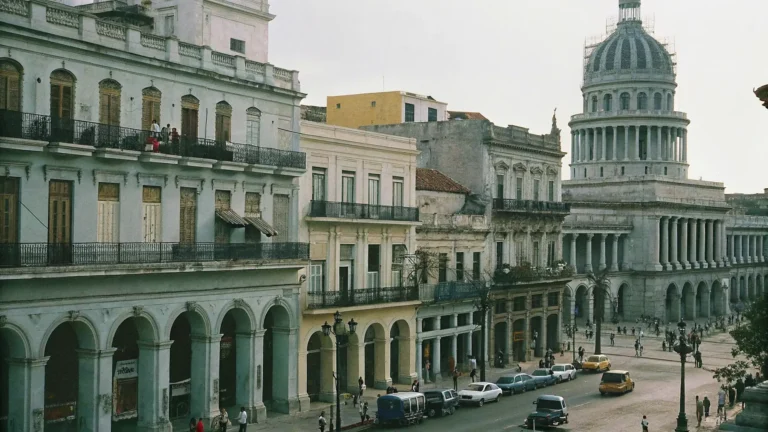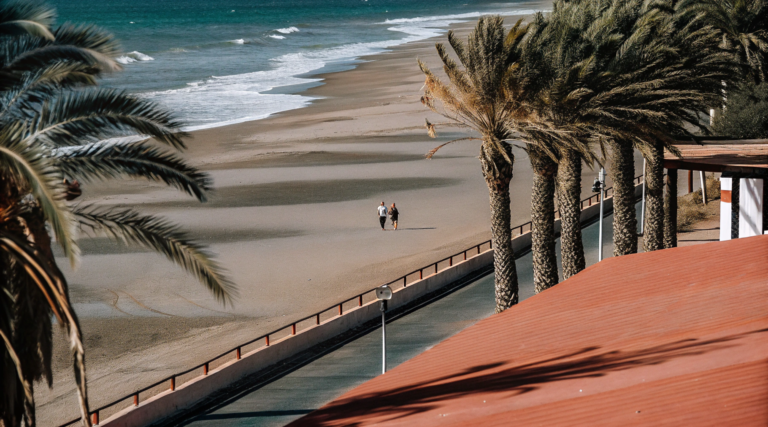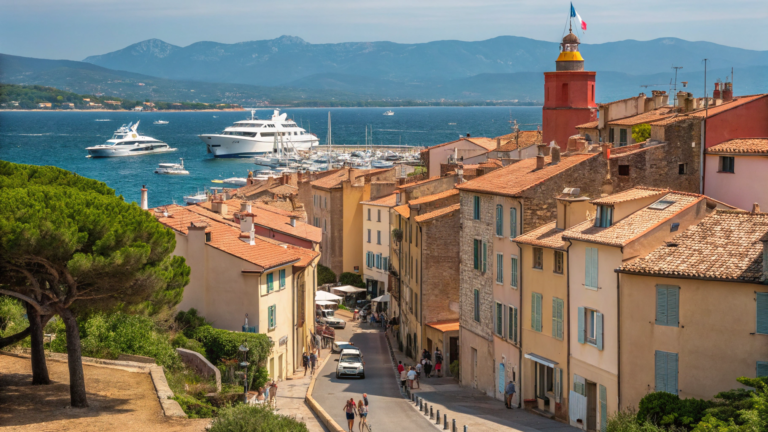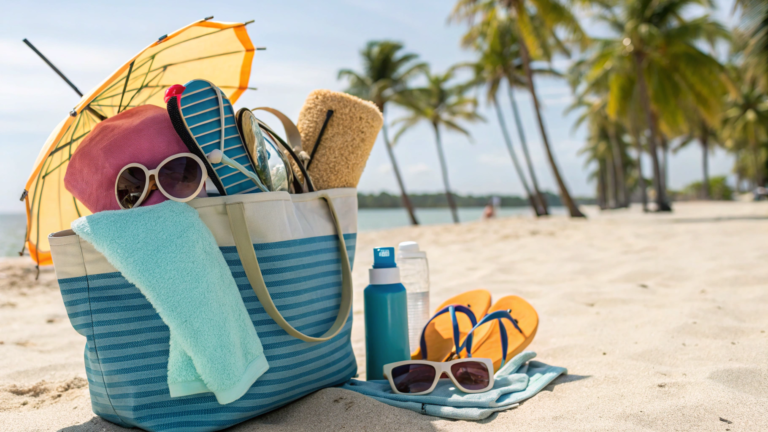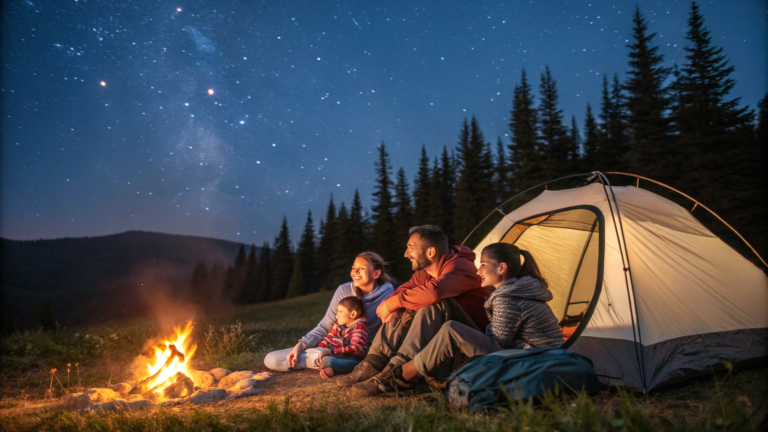Summer Lake 7 Insane Things You Have to Try Right Now
My mom still brings up the time I spent three weeks’ salary on a Vegas trip and came home broke and sunburned. “You could’ve had just as much fun at the lake,” she said. I’m shocked that my eyeballs didn’t fall out after rolling them so forcefully.
Fast forward two years, and guess where I spent my best vacation ever? At a lake. A random, unnamed lake in northern Michigan that I can’t even pronounce correctly. And Mom? She was absolutely right, though I’ll never admit it to her face.
It started because my buddy Jake got dumped and needed somewhere to “find himself” or whatever. We threw some camping gear in his beat-up Toyota and drove north until we found water. What happened next changed how I think about having fun.
Table of Contents
Summer Lake Days Don’t Try to Impress You (That’s Why They’re Better)
Beach towns scream at you with neon signs and overpriced everything. Mountain resorts make you feel like you need special gear just to breathe their air. But lakes? They wait for you to discover that they are truly flawless as they sit there, going about their own business.
The lake we stumbled onto didn’t even have a name on our crappy gas station map. Only this kidney-shaped patch of blue with a few dirt roads and pine trees surrounding it. No upscale dining establishments, no souvenir stores, and no lines vying for parking spaces Just water and possibilities.
That first morning, I watched the sun come up while drinking gas station coffee from a paper cup. Sounds terrible, right? It was the most peaceful hour I’d had in months. No phone service helped, but mostly it was just being somewhere that didn’t want anything from me except maybe to not litter.
Stand-Up Paddleboarding: Looks Stupid, Feels Amazing
Jake rented paddleboards from this guy who ran a bait shop out of his garage. The boards looked like they’d survived a few wars, and the paddles had more duct tape than original material. “These’ll work fine,” the guy said, like he was doing us a huge favor.
I felt ridiculous carrying that thing to the water. Picture a grown man hugging an oversized surfboard while wearing a life jacket that smelled like wet dog. Not my finest moment.
But then something weird happened. After about ten minutes of falling off, getting back on, falling off again, and questioning my life choices, I managed to stand up and actually paddle forward. Not gracefully – more like a drunk giraffe learning to ice skate – but I was moving under my own power.
That’s when it hit me. This wasn’t about looking cool or mastering some technique. It was about being out there on the water, moving at whatever pace felt right, with nothing but my own balance keeping me upright.
What nobody tells you about SUP: • Your abs will hurt tomorrow, but in a good way • You’ll spend the first day falling off more than staying on • Rental boards are usually fine for learning • Don’t try to look graceful – just try not to drown • Start in shallow water where you can stand up
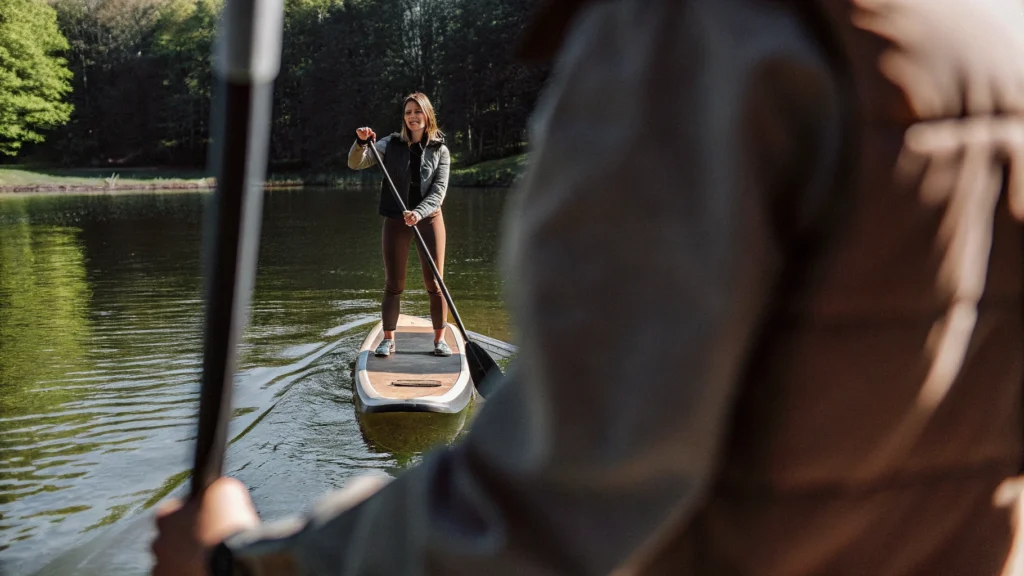

The gear situation is pretty simple. You need a board, a paddle, and something to keep you afloat if things go wrong. Everything else is just marketing. Those $800 carbon fiber boards are nice, but a $300 inflatable board from Costco works just fine for learning.
Swimming in Real Water: Your Pool Can’t Compare
Hotel pools are fine if you like swimming in chlorinated rectangles with screaming kids. Lake swimming is something else entirely. It’s like the difference between watching nature documentaries and actually being outside.
My first real lake swim happened at sunset on day two. The water was that perfect temperature where you can’t tell where your skin ends and the lake begins. I floated on my back watching bats start to come out, listening to some kind of bird I couldn’t identify making weird calls across the water.
Then a fish brushed against my leg. Not gonna lie, I freaked out a little. But after the initial “oh god what was that” moment, I realized something amazing was happening. I was sharing space with actual wildlife in their actual home. When does that ever happen in regular life?
Real talk about lake swimming: • The first few seconds always feel shockingly cold • Fish are more afraid of you than you are of them • Some lakes have weeds that feel gross but won’t hurt you • Natural water supports your body differently than pool water • You’ll sleep better after swimming in a lake than after any gym workout
Don’t be dumb like I almost was: Always swim with someone else. Lakes can have weird currents, sudden drop-offs, or underwater obstacles you can’t see. I’m a decent swimmer, but that doesn’t matter if something goes wrong and nobody knows where you are.
The mental health thing is real, though. Something about natural water washes stress away in a way hot showers never could. Maybe it’s the minerals, maybe it’s just being surrounded by something bigger than your daily problems. Either way, it works.
Kayaking: The Perfect Speed for Actually Seeing Stuff
Boats are too fast, swimming is too slow, but kayaking? That’s the goldilocks zone of lake exploration. You can cover ground but still notice things like that weird rock formation or the heron standing perfectly still in the shallow water.
Day three, we rented these ancient kayaks that looked like they’d been stored outside since the Clinton administration. Mine had a crack that someone had “fixed” with what appeared to be bathroom caulk, but it floated and the paddle worked, so whatever.
Best decision we made all weekend. Kayaks take you places you’d never reach on foot and show you angles of the lake you’d never see from shore. We paddled into this narrow channel between some reeds and found ourselves in what felt like a secret lagoon.
That’s where we saw the turtle convention. I’m not even exaggerating – there must have been thirty painted turtles sunning themselves on this fallen log. They didn’t care about us at all, just kept doing turtle things while we sat there feeling like we’d discovered some hidden nature documentary.
Kayak basics for people who’ve never done it: • Longer kayaks go straighter but turn slower • Wider kayaks are more stable but harder to paddle • Most people buy kayaks too small – you want room for stuff • Sit-on-top kayaks are less tippy than sit-inside ones • Your first kayak doesn’t need to be fancy
Gear that actually matters: • Paddle (duh) plus a backup in case you lose the first one • Something waterproof for your phone and keys • Water bottle because paddling makes you thirsty • Snacks because everything makes you hungry • Hat that won’t blow off your head
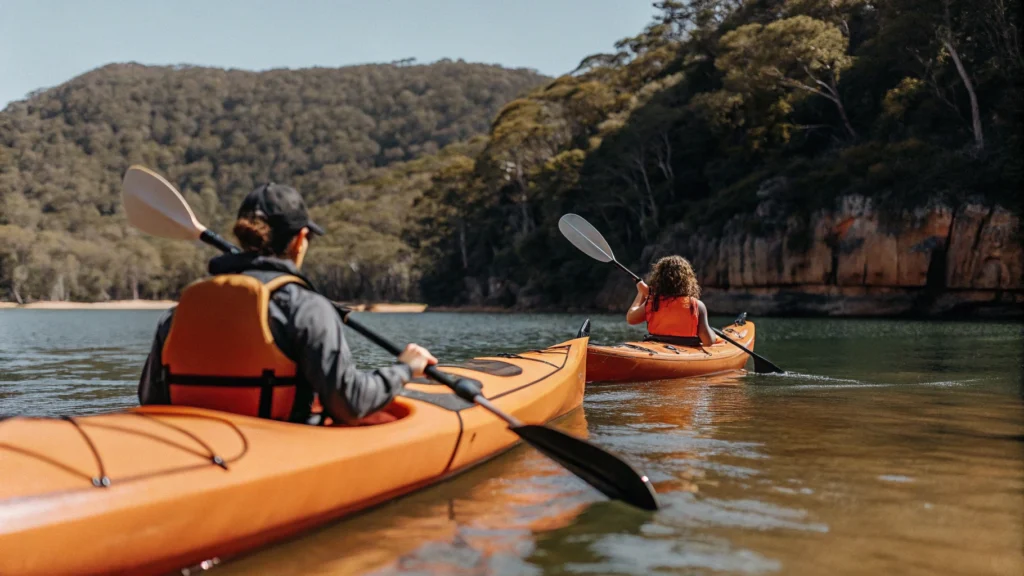

Rental places usually charge $40-60 per day, which includes basic instruction and all the gear. If you get hooked, used kayaks hold their value pretty well, so you can try different styles without losing much money.
Fishing: Meditation with the Possibility of Dinner
I haven’t been fishing since I was twelve and my dad gave up trying to teach me patience. But something about being on that lake made me want to try again. Maybe it was the peaceful morning water, maybe it was just having nothing else to do.
The bait shop guy set us up with basic gear and enough worms to feed a small army. “Just cast out there and wait,” he said, like it was the simplest thing in the world. Turns out, it kind of is.
We didn’t catch anything the first morning. Didn’t even get a bite. But sitting there watching the water, listening to the sounds of the lake waking up, feeling the sun warm my shoulders – it didn’t matter. The not-catching was almost as good as catching would have been.
Then Jake’s rod bent nearly in half. For about five minutes, he battled this fish, and we both became more ecstatic than two adults should be over a bass that was likely two pounds in weight. We took pictures like he’d landed a marlin, then threw it back to fight another day.
Fishing stuff that actually helps: • Early morning and late evening work best • Live bait catches more fish than fake stuff • Ask locals what’s working – they love sharing information • Bring more water than you think you need • Don’t expect to catch anything and you won’t be disappointed
The gear situation simplified: You can spend a fortune on fishing equipment, or you can catch fish with a $50 rod-and-reel combo from a discount store. Guess which approach works better when you’re starting out?
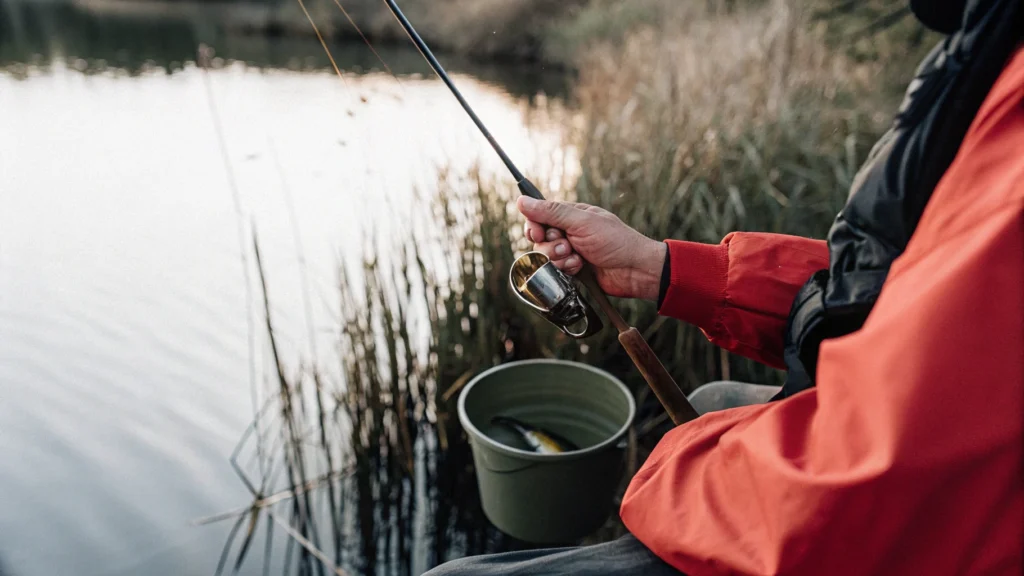

Basic tackle box, some hooks, sinkers, and bobbers. Add a net if you want to keep fish for dinner. Total investment: under $80. Everything else is just showing off.
Sleeping Under Stars: Nature’s Original Entertainment System
Hotel rooms are fine, but there’s something about falling asleep to the sound of water lapping against the shore that no air conditioner can match. Add a sky full of stars you can actually see, and you’ve got better entertainment than any streaming service.
We pitched our tents maybe fifty yards from the water’s edge. Not too close because of morning dew, but close enough to hear the gentle lapping all night. Best soundtrack for sleep I’ve ever had.
City people forget how dark night actually gets. Without streetlights and neon signs, the stars come out like someone turned on a switch. We lay on our backs for an hour just staring up, pointing out constellations we half-remembered from elementary school.
Lakeside camping reality check: • Moisture rises from water at night, so everything gets damp • Bugs can be intense near water, especially at sunset • The temperature drops more than you expect • You’ll hear sounds you can’t identify (they’re probably harmless) • You’ll sleep better than you have in months
Gear that makes the difference: • Tent with a good rain fly • Sleeping pad that insulates from the ground • More bug spray than seems reasonable • Headlamp for nighttime bathroom trips • Tarp under your tent for extra moisture protection
Most lakeside campsites cost $20-35 per night. Some require reservations months ahead, others operate first-come-first-served. We got lucky and found an empty site, but don’t count on that happening.
Taking Pictures: Documenting Magic Moments
I’m not a photographer. My Instagram is mostly pictures of food and my cat. But something about that lake made me want to capture what I was seeing. Not for social media, just for me.
The best shot I got happened completely by accident. I was trying to photograph the sunrise reflection when this osprey dove into the water maybe twenty feet away. I pressed the button and pointed the camera out of pure instinct. Got one frame of the bird coming up with a fish in its claws.
Now I have the picture framed on my desk, but really? The moment was better than the picture. Watching that bird hunt, seeing it succeed, being close enough to witness something most people only see on nature shows – that’s the stuff you can’t really capture with a camera.
Photo tips from someone who’s not a pro: • Early morning and late evening have the best light • Don’t obsess over getting the perfect shot • Sometimes put the camera down and just watch • Animals do cool stuff when you’re patient • Your phone camera is probably fine for most situations
You don’t need expensive equipment to get good lake photos. The secret is being there at the right moment and paying attention to what’s happening around you instead of just looking for the next shot.
Water Sports: Controlled Terror and Pure Joy
I thought wakeboarding was something only extreme sports people did. Turns out, it’s actually pretty approachable if you don’t mind looking ridiculous while you learn.
Our last day, Jake talked me into trying it. There was this guy with a boat who offered lessons for fifty bucks. “How hard can it be?” I thought. Famous last words.
The instructor kept yelling “Let the boat pull you up!” while I kept trying to muscle my way to standing. Took maybe ten face-plants before I realized fighting the rope was the problem. Once I relaxed and let the boat do the work, everything clicked.
That moment when you finally get up and find yourself skimming across the water? It’s like learning to fly. Not graceful flying – more like controlled falling – but still flying.
Wakeboarding reality for beginners: • You will fall more than you stand • Don’t try to stand up too fast • Keep your arms straight and let the boat pull you • Start with shorter rope lengths • Expect to be sore tomorrow
The cost situation: Water sports aren’t cheap. Boat rentals run $400-700 per day, lessons cost $75-150 per hour, gear rental adds another $50. But split between friends, it becomes reasonable. And honestly? How often do you get to feel like you’re flying?
Many lakes have “learn to wakeboard” packages that include everything for around $100 per person. That’s actually pretty fair for something you’ll remember forever.
Making It Happen: The Practical Stuff Nobody Talks About
The hottest months to visit are July and August, but they also have the largest visitors. June and September can be perfect – slightly cooler water, fewer people, easier to find campsites.
What it actually costs for a weekend: • Camping: $25-40 per night • Gas to get there: $50-100 • Equipment rentals: $40-80 per day per activity • Food (if you cook): $30-50 per day • Food (restaurants): $75-120 per day • Beer (essential): $20-30 per day
Ways to spend less money: • Go during weekdays when possible • Bring your own food and drinks • Look for equipment package deals • Camp instead of staying in hotels • Split costs with friends
Finding the right lake: Don’t overthink this. Pick something within a few hours’ drive and just go. The perfect lake is the one you actually visit, not the one you spend six months researching online.
What This Is Really About
Look, I could give you more technical advice about paddle strokes and camera settings and fish feeding patterns. But here’s what actually matters: lake adventures remind you what it feels like to be completely where you are.
When you’re balanced on a paddleboard watching the morning mist lift off the water, you’re not thinking about work emails or relationship problems or what you’re going to post online. You’re just there. Fully, completely there.
That’s what these activities really offer. Not just fun, but presence. Not just exercise, but peace. Not just adventure, but proof that the best experiences don’t require airplane tickets or resort packages.
So stop planning and start doing. Pick one activity from this list. Find a lake within driving distance. Rent some gear. Spend a day remembering what it feels like to try something new.
The water doesn’t care if you’re graceful or clumsy, experienced or terrified. It just wants to show you something beautiful. And chances are, you’ll come home with stories better than anything you’d get from another beach vacation.
What’s calling to you? The quiet focus of fishing at sunrise? The full-body workout of paddleboarding? The controlled chaos of wakeboarding?
Whatever it is, stop making excuses. Summer won’t last forever, and these experiences are waiting for you to be brave enough to try them.

